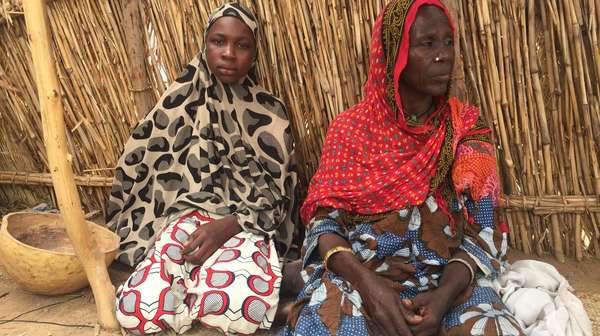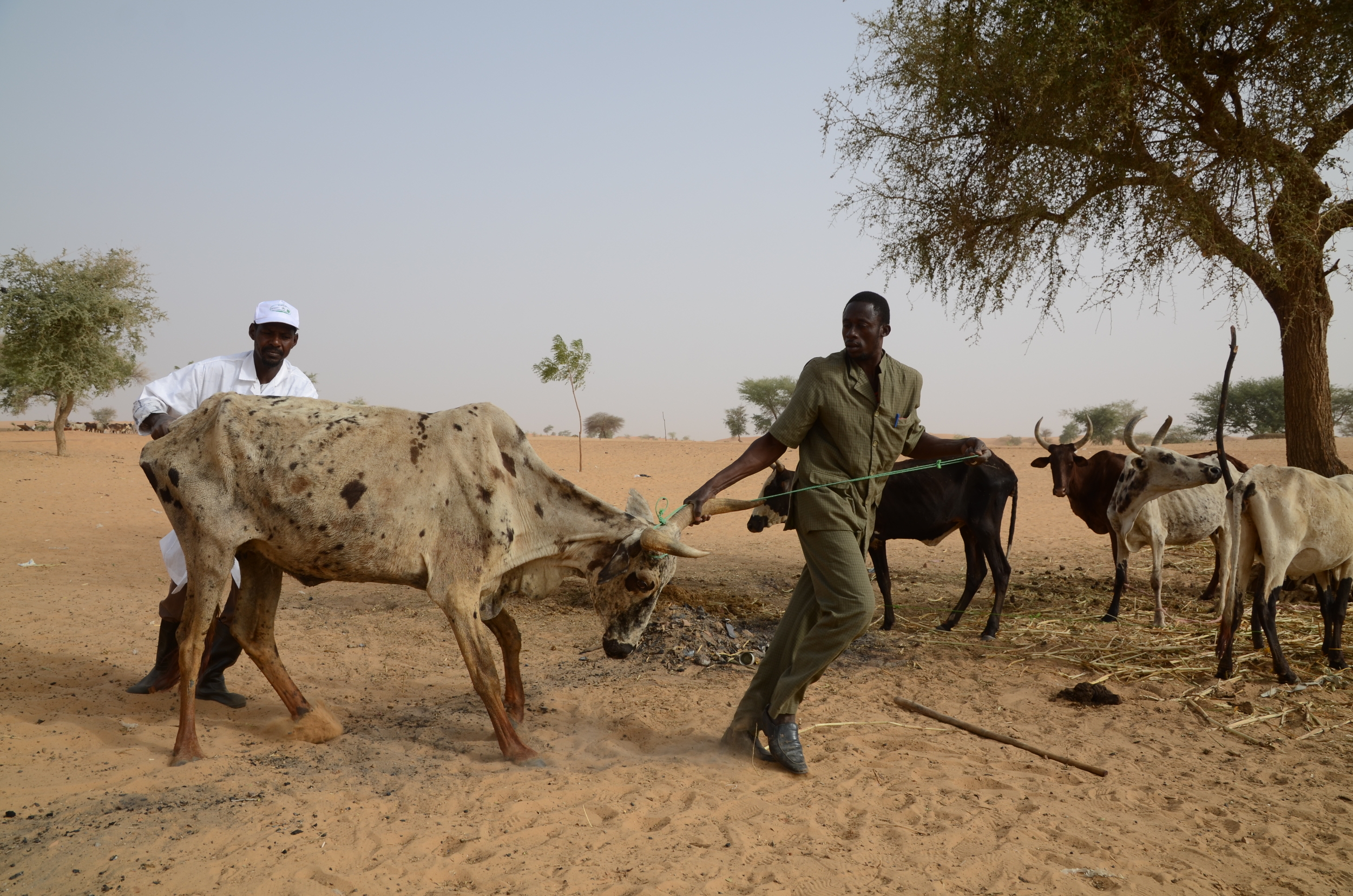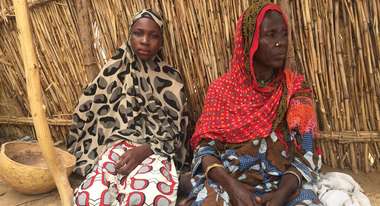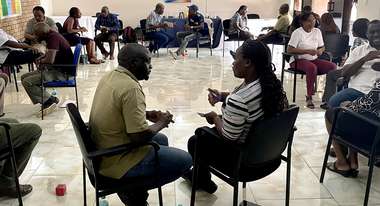Joint Press Statement of humanitarian NGOs on the sanctions and conflict with the existing vulnerabilities in Niger
Niger: "Humanitarian Assistance of vital importance"
Jameson Gadzirai is Head of Programs for Welthungerhilfe (WHH) in Niger. In this interview, he talks to us about the current situation in the country and how we continue to support people at risk of hunger and poverty.
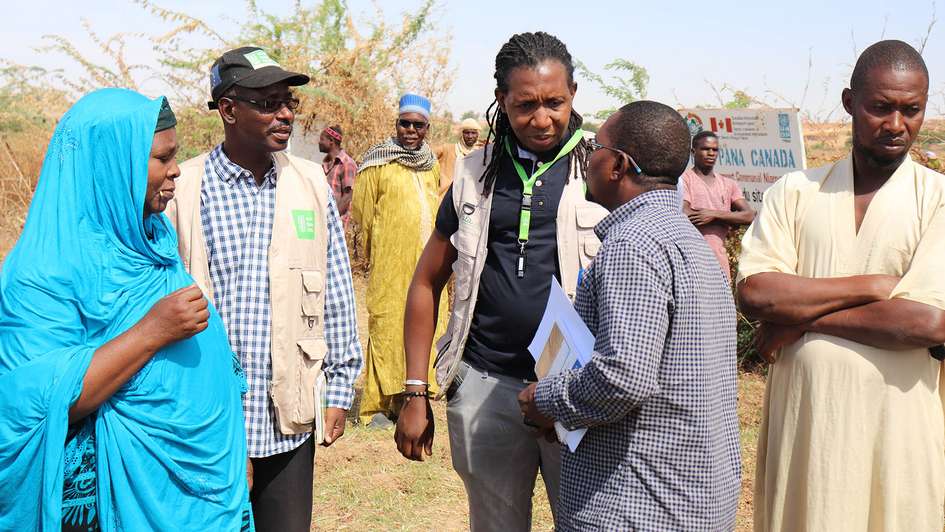
Jameson, how do you assess the situation at the moment?
The situation is very uncertain. WHH hasn’t stopped our engagement and work. Due to the ambiguous political situation and security situation in some regions, we experienced a delay in carrying out field visits and implementing some of our activities, especially those that require some form of approval from authorities. We monitor the situation very closely and are in permanent contact with all stakeholders on the ground.
What kind of assistance does WHH provide in the country?
We provide humanitarian and development assistance. Through the delivery of food as well as cash transfers, we help to secure food for the population. At the same time, we develop concepts for sustainable food security together with the local population. This includes, for example, the establishment of vegetable gardens and tree nurseries. We focus on pregnant women, young mothers and children under five, for whom a reasonably balanced diet is particularly important.

The conflict threatens to further exacerbate the situation for people who are already threatened by hunger.
Jameson Gadzirai Head of Programs NigerAnd how many people are actually supported by our projects in Niger?
Last year, we supported at least 206,000 people in the three regions of Tillabéri, Tahoua and Diffa. These are regions with very strong population movements. In addition to internally displaced people, people from neighboring countries, from Nigeria or Mali, also seek shelter there. Until now, the areas around the regional towns were relatively safe. But because of this, the need for food and support also grows here. The people we have been caring for in these places were already vulnerable. Now they are being severely weakened by the conflict.
The humanitarian needs in the Sahel region are great
This means that our work on the ground was already very difficult before the coup?
Absolutely. The security situation has been very volatile during the ongoing crisis in the Sahel region, with massive and continuous movements of refugees from active conflict areas to relatively safe areas. The challenge is now magnified by the fact that we no longer have access to the communities in need. The humanitarian needs are great, especially in food security. We expect them to become even greater, and actors on the ground will have to weigh risks before proceeding.
Niger is home to 26 million people. According to the UN, 4.3 million of them need humanitarian assistance. So, what does this mean for these people?
Of the 4.3 million, we estimate that at least 3.3 million live in critical food insecurity – so they could go hungry in the coming months. The coup means even more uncertainties for them.
When food prices rise, hunger rises
We were already seeing signs: Food prices in local markets are rising. The risk is high that many people will no longer be able to afford food. And now the situation has become even more catastrophic due to the current border closures, as Niger imports at least 20% of its cereal needs. A 50kg bag of rice that used to sell for 10,500 CFA-Franc (about 17.5 US Dollar) is now sold for 15,000 CFA Franc (about 25 US Dollar), an increase of almost 50 %. Disposable incomes for local communities are not increasing in the same light. So food insecurity continues to increase. There is a domino effect that is hitting populations that are already suffering.
In addition, Niger is currently in the rainy season, which is supposed to end during August. It is a lean season when supplies gradually run out. Food reserves are being depleted, and at the same time, people's expected incomes are falling before the next crop can be harvested. So it is a very worrying time.
What can WHH do concretely for the people in this situation?
When the situation allows, we distribute food, seeds and tools for agricultural production. Setting up feed banks enables people to feed their animals in times of need. We also provide cash so needy groups can buy food and meet their needs. Our focus is also on improving access to water.
Thank you for the interview, Jameson.





